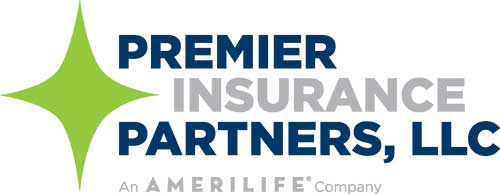Educational Medicare events serve as an invaluable platform for generating leads, especially during the Annual Enrollment Period (AEP) for Medicare. However, sales activities must be avoided such as having a sign-in sheet or passing out enrollment forms. You cannot talk about plan-specific information related to prescription drug plans, Medicare Advantage, Medicare Supplements, premiums, copays or set future marketing appointments as examples.
Ensuring compliance with the regulations established by the Centers for Medicare and Medicaid Services (CMS) is paramount when organizing Medicare education events during the 2024 AEP. Medicare marketing and sales events have different CMS guidelines. Let’s explore the comprehensive guidelines provided by CMS for hosting educational seminars.
Establishing Your Medicare Educational Event:
Before working on event planning, it’s imperative to outline your objectives clearly. Medicare education events are designed to educate beneficiaries about various Medicare programs, including Medicare Advantage, Part D, and others. It’s crucial to emphasize that these events should prioritize education over marketing specific plans. If the objective is marketing, strict adherence to CMS guidelines for Medicare sales events is mandatory. Furthermore, educational events must be conducted in public venues to ensure transparency and accessibility, avoiding private settings such as in-home or one-on-one sessions.
Virtual Medicare event:
Depending on carrier and state regulations, hosting a compliant virtual education event for Medicare beneficiaries or potential enrollees during the 2024 AEP may be a viable option. If opting for a virtual presentation, selecting an appropriate online platform like Zoom, or Facebook Live instead of a physical location is recommended. Consultation with carriers regarding specific rules for virtual events is essential to ensure compliance.
In-Person Medicare Educational Events:
Effective promotion is crucial for the success of educational events. Leveraging various marketing channels, such as radio, social media, and direct mail, can significantly enhance event visibility. However, strict adherence to specific guidelines is essential:
-
- All promotional materials must clearly label the event as “educational” to accurately convey its purpose to potential attendees.
- Including a disclaimer in event advertisements and invitations, stating: “For accommodations of persons with special needs at meetings, call [insert phone and TTY number],” is imperative to ensure inclusivity.
Moreover, distinguishing between enrollee-only events, aimed at retaining existing enrollees in a particular plan, and general educational events is essential. Any mention of benefits or retention marketing during enrollee-only events must align meticulously with carriers’ guidelines to maintain compliance.
Delivering Your Presentation:
During educational events, the primary focus should be on providing comprehensive information and fostering understanding among attendees regarding various Medicare programs. To ensure compliance and effectiveness, adherence to the following guidelines is recommended:
Educational Event Do’s:
-
- Distribute objective and generic educational materials on Medicare Advantage (MA), Part D, and other Medicare programs to facilitate informed decision-making among attendees.
- Responsively address queries posed by attendees to mitigate any potential ambiguities and enhance comprehension.
- Provide generic business reply cards to attendees to facilitate further communication and follow-up.
Educational Event Don’ts:
-
- Avoid disseminating enrollment applications or marketing materials containing specific plan information, as the primary emphasis should be on education rather than solicitation.
- Refrain from offering cash or nominal gifts, as these could potentially influence attendees’ decision-making processes. You can offer light snacks and refreshments, but no meals as this can be considered an influencing factor also.
- Steer clear of discussing carrier-specific plan benefits or distributing marketing materials or promotional items during the event to maintain neutrality and objectivity.
The Importance of CMS Compliance:
Adherence to CMS guidelines is very important for the success and integrity of educational events. CMS, along with carriers, rigorously monitors compliance and imposes stringent measures to address any violations. Potential consequences of non-compliance may include administrative penalties, cease and desist orders, or even license suspension or revocation for Independent Sales Agents. It’s crucial to understand and adhere to CMS guidelines diligently to ensure the seamless execution of Medicare education events and foster trust among attendees. Additionally, the presence of secret shoppers employed by CMS and carriers underscores the importance of meticulous adherence to guidelines to avoid any potential repercussions.
PIP remains firmly entrenched as an industry leader, setting the standard for excellence in the insurance industry. With its unparalleled knowledge, innovative approach, and unwavering dedication to client and sales agent success, Premier Insurance Partner is not just a field marketing organization (FMO) – it’s a driving force in the insurance industry in the Centennial State and beyond.
If you have any questions related to Medicare or other insurance products such as annuities, life insurance or new to the insurance industry please don’t hesitate to reach out. You can fill out the contact form, call 855-827-1661, or email info@pip1.com.
Read More: What Are the Rules for Hosting a Medicare Sales Event?
People Also Read: The Pros and Cons of Selling Insurance: A Comprehensive Overview

